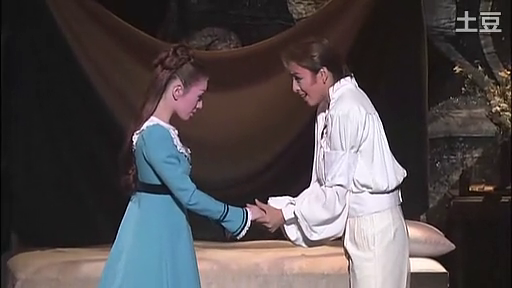So I am back from Japan
(with a new obsession).
I will not write about Japan
as there is too many things to write.
Maybe when I am in a mood for
reflections about a concrete thing I will,
but generally I continue the blog from now on.
When I said a new obsession
I meant Takarazuka.
I liked it earlier,
but after seeing a performance live I fell for it completely.
Right new I am living the story called Dark Brown Eyes
which was based on the Pushkin's novel The Captain's daughter.
I read the novel and it was very random.
Pushkin was a genius when writing poems but novels...
Well. Nothing outstanding.
But the story itself has a big potential.
Young a little naive boy who is going far from home to a regiment,
an innocent girl who is the daughter of this regiment's captain
and a wild Cossack who is living his crazy ideals and
starts a rebellion against aristocrats.
starts a rebellion against aristocrats.
Of course there is love, but above it there is a strange friendship
between the young boy of aristocrat origin and mentioned Cossack Pugachov.
It is unbelievable how Japanese modern music theater
can make alive a historical character
can make alive a historical character
like Pugachov. And how this interpretation can move you.
Otozuki Kei as Nicolai was perfect.
As in Takarazuka should be she was your dreamed lover
with a smile to kill for.
And I loved how a snow storm
in which Nicolai was lost (and then rescued by Pugachov)
was painted.
One of snow girls he saw there was played by the same actor
who was Nicolai's lover later.
Masha becomes the embodiment of Nicolai's dream lover- snow shoujo.
But it was Pugachov that caught my attention the most.
I thought a lot about him after watching the performance.
In the book Pugachov tells Nicolai
(well, in fact in the book the character is called Pyotr)
the Kalmyk tale about an eagle and a crow.
An eagle lives 33 years when a crow lives 300,
but he eats only carrion.
Eagle tried to eat carrion to live longer,
but he resigned- it is better to live 33 years, but eat living creatures.
Pugachov believed that starting war and fighting
means to live his live fully, maybe shorter,
but it is the way of making the most of it.
Nicolai thought that killing is a way of living like a crow.
Pugachov and his delicate friendship with Nicolai shows him as a man
who was not completely bad. He was twisted.
His idea of life was twisted.
When Nicolai got to know that Pugachov was caught
and is going to be executed he said:
"Eméla, Eméla,"I said to myself, in vexation,
"why did you not cast yourself on the bayonets,
or present your heart to the grapeshot. That had been best for you"
I cried when reading it.
Nicolai does not say "Pugachov" or use his titles
he uses his name in a shorter form.
Like referring to a friend.
He knows that death is the only end for
a person like Pugachov (he can not agree with his actions),
but he regrets that Emela, his friend Emela in rabbit's doublet,
can not die quickly, without dishonor, in a fight he enjoyed so much.
Isn't this beautiful and tragic?
Before the execution Pugachov sings the same song
he sang when being alone with Nicolai earlier.
He does not regret his short, but intensive life.
Until the end he believes he was an eagle, not a crow.
The performance was ended beautifully.
Meeting of Masha and Nicolai.
The love on the background of historical turmoil.
Takarazuka makes you dream.
It makes fantasy from the past.
Here is the ending.
(it is from the older version,
I can not find online
the part from Snow troupe performance from 2011)











